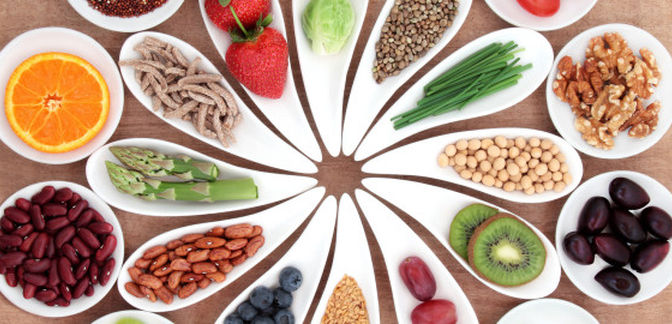Earlier this year the World Cancer Research Fund and the American Institute for Cancer Research (AICR) released their lifestyle recommendations to prevent cancer. Cancer is responsible for 8 million deaths annually, with over 14 million cases each year. It is projected that by 2030, there will be over 21 million new cases per year, with 13 million annual deaths resulting from cancer. Estimates on the total economic world-wide cost of cancer at that point in time will be $458 billion dollars.
After reviewing all the data from the last 30 years on diet, weight and physical activity, The World Cancer Research Fund and AICR confirmed a link between cancer and lifestyle. The report titled “Diet, Nutrition, Physical Activity and Cancer: A Global Perspective”, gives a blueprint of 10 recommendations for healthy living to reduce the risk of cancer.
The core recommendations are:
There is a large amount of evidence that links many cancers to obesity, including at least 12: liver, ovarian, prostate, stomach, oropharyngeal, colon, breast, gallbladder, kidney, esophageal, pancreatic, and endometrial cancer. Up to 15% of cancers are linked to an elevated Body Mass Index (BMI); recommended BMI is less than 25. Even a high normal BMI may be associated with an increased risk of cancer.
2. Be Physically Active
Studies have shown that moderate exercise can lower risk of esophageal, liver, lung, and breast cancers, and leukemia. It is recommended that one have a minimum of 150 minutes per week of moderate intensity (working hard enough to break a sweat, but still able to carry on a conversation) or 75 minutes of high intensity exercise (jogging, swimming, biking, tennis, etc.) per week. Strength training major muscle groups twice a week is also recommended.
3. Eat a Diet Rich in Whole Grains, Vegetables, Fruits and Beans
Did you know fruits and vegetables contain phytochemicals, which have anticancer effects? The National Cancer Institute recommends especially adding more cruciferous vegetables to your plate (broccoli, brussels sprouts, cabbage, cauliflower, collard greens, kale). These foods break down to biologically active compounds that have been shown to decrease bladder, breast, colon, liver, lung and stomach cancers in animal studies. It is thought that these foods may prevent cancer in various ways:
- by protecting cells from DNA damage
- preventing the migration of tumor cells
- by having anti-inflammatory, antiviral, and antibacterial effects.
4. Increase Fiber Intake
Most people do not eat nearly enough fiber; the goal should be at least 30 grams of fiber a day. A diet higher in fiber can lead to a 24% decrease in risk of colon cancer.
5. Limit Fast Foods and Processed Foods High in Fat, Starches, and Sugars
It is well-known these foods are associated with obesity, but they also cause inflammation which leads to many poor health outcomes.
6. Limit Red Meats and Processed Meats
Limit consumption of red meat to no more than 3 times a week with a total of less than 18 ounces a week. The meat should be from grass fed cattle and be a lean cut. One reason red meat is on the list is due to the hydrocarbons that are formed when meat is cooked at a high temperature. The hydrocarbons can cause mutations that can lead to cancer. Processed meats can harm the stomach lining leading to H. pylori infection. H.pylori has been liked to both ulcers and gastric cancer. See additional details for avoiding meat at the MD Anderson Cancer Center website.
7. Avoid Sugar-Sweetened Beverages
There is an obvious association to these drinks and obesity. A recent study published in the British Medical Journal demonstrated an increase in cancer risk with just 3.38 ounces (a typical can of soda pop has 12 ounces) of sugar sweetened drinks a day. Over a 9-year time frame overall cancer rates increased 18%; breast cancer increased 22% in those who consumed the sugar-sweetened drinks.
Consumption of alcohol, even in modest amounts can increase risk of cancer, most notably mouth, throat, esophagus and liver, and breast cancers. One concern is that alcohol is metabolized to acetaldehyde which can be carcinogenic. It can also raise levels of estrogen, thus the link to some forms of breast cancer. It is recommended that females have no more than one drink a day, while males should limit drinks to two a day.
9. Breastfeeding
It is recommended that all new mothers breastfeed their infants, if possible. In addition to many benefits to both mother and baby, breastfeeding protects against breast cancer and reduces the risk of childhood obesity.
10. Supplements
Multiple studies on the use of supplements to prevent cancer have been disappointing. Vitamin E, Vitamin C, Vitamin D and general multivitamins have no strong indication for use in prevention of cancer. Same goes for most of the minerals. In some cases, use of supplements can actually increase cancer risk. For instance, some studies have shown a correlation between high dose Calcium supplementation and risk of developing prostate cancer. That is not to say that specific supplements in targeted disease states for an individual have no health benefit, just that the scientific evidence is lacking for the general population to take multiple, random supplements for cancer prevention.
With at least 50 percent of cancer being preventable, it is important to modify the risks where we can.
Like with many disease states, the cornerstone of cancer prevention is anchored in good nutrition and exercise.
Useful Websites:
MD Anderson Cancer Center – Nutrition Guidelines
The New American Plate – A Plate for a Cancer-Protective Diet
References:
- Diet, Nutrition, Physical Activity and Cancer: A Global Perspective. World Cancer Research Fund/AICR. 2018.https://wcrf.org/dietandcancer
- Nelson R., Vega C. 10 Recommendations on How to Prevent Cancer. https://www.medscape.org/viewarticle/897664_print
- Park Y., Colditz G., Diabetes and Adiposity: A Heavy Load for Cancer. The Lancet Diabetes and Endocrinology. 2018;6(2):82-83
- Srour B. et al., Sugary Drink Consumption and Risk of Cancer: Results from NutriNet-Sante Prospective Cohort. BMJ. 2019;366:12408





